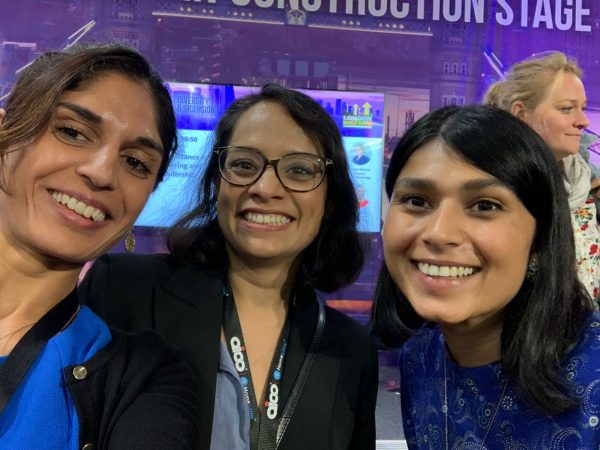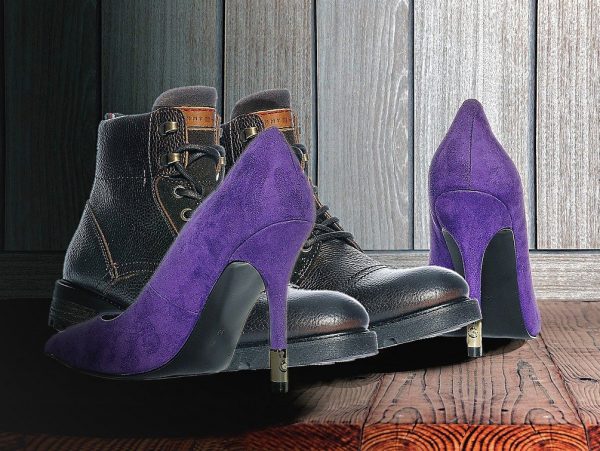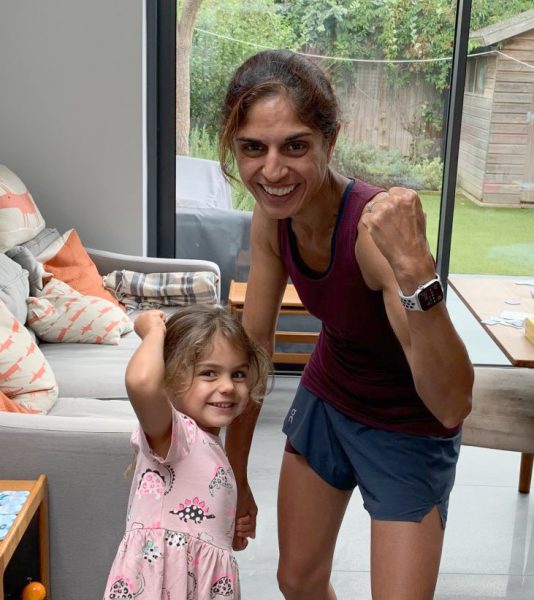Female Exhaustion in the Workplace
Human resources • Industry matters
I have had a lot of conversations with women in their early 40s who are simply exhausted. These women are managing busy home lives, they have small children, aging parents, and potentially starting their perimenopause journey. I identify with this and like me, many of them are also holding down senior leadership positions in business. While there is support for them in their domestic lives, in the workplace many women with career ambitions find themselves paddling a lone canoe. I firmly believe that in today’s society, the situation I describe is unacceptable and something has to change.
So, this is my experience!
I get asked the following questions a lot, mostly by my female friends and industry colleagues, who are working mothers themselves.
“How do you do it all?”
“How did you rip up the rule book, start your company and still manage to have a family and keep your career going?”
“How do you find the time to lead a company, raise three children, be a school governor, volunteer for the PTA, host a podcast, train for long distance runs, read and manage the home?”
I have also been called ambitious, driven and an over achiever by some women, which in my opinion, had negative undertones.
I have sat and thought about these slightly uneasy questions and statements a lot recently, mainly because I didn’t know the answers. I’m very aware of the role ego plays, and I do my best to ground myself every day. That said: “How did I manage to get here?”, “Am I an over achiever?” “Who am I doing this for?” Women are good at self-depreciation to the point of dismissing their achievements and making themselves small. I am skilled at this.
How did I accomplish all these things in my life? Was it luck, opportunity, the right support, or just hard work?!
The answer – it was a combination of all those things. The biggest ingredient was relentless, persistent effort, consistency, and believing in myself, and later in the vision we had for Ground & Water.
Having been raised in an immigrant household, seeing my parents graft every day, I was determined to be financially independent, to be self-reliant, to make something of myself.
 Challenges in the workplace
Challenges in the workplace
Truthfully, I have always been driven and ambitious, albeit quietly determined, and yet I am an intersectional woman, a woman of colour, in a predominantly white and male industry. I was different from day one, something I hated growing up, but something I was getting used to in the workplace. And I still face microaggressions today!
I discovered early on in my career that there was no role model to aspire to that looked like me, no mentor or sponsor, no one advocating for me or helping me climb the ladder. I had to become my own champion, my own cheerleader. As McKinsey Women in the Workplace asserts: “While men get hired and promoted based on potential, women advance based on what they’ve already accomplished”; so I came into work early, stayed late and worked hard to get noticed.
Women put a lot of pressure on themselves to be able to do it all… I am totally guilty of this. We always have something to prove, at least I have felt I do. I chose to have a career and children, and most days it feels like putting on my armour and going out to battle to fight for my place at the table. Women are so worried about being seen as incapable that we over deliver and over function, resulting in making everyone else’s lives easier.
The Construction Industry has made some progress when it comes to gender diversity. Fifteen years ago, I couldn’t see how I was going to build my career and start having a family. So, I bravely and ignorantly ripped up the rule book, and working alongside my business partner, Fran Williams, Ground & Water was born. Initially led from our kitchen tables, and soon with babes in arms, work always somehow continued and it did and still does provide me with great flexibility with my parenting responsibilities and being there for my children. There was however no napping when the baby napped and very few baby groups and coffee mornings in those early years. I just juggled babies, toddlers, and work. But I was exhausted, burnt out, lonely and suffered post-natal depression at one point.
Managing the unmanageable
So, how do I manage it all now? I am disciplined with my time and daily habits. I’m organised, I plan meticulously, and I take all my responsibilities seriously. I hate letting others down, so will go the extra mile, even if it means sacrificing my own health at times. I am gritty, by which I mean, I will dig deep to get the task done. I do, however, carve out time for self-care – exercise, meditation, journalling, these are my go-to daily rituals.
Don’t get me wrong, I also have help and support and couldn’t perform in my various roles without it. I have a whole team at work, my husband helps with the house and children, I have a cleaner, my mum is brilliant at stepping in to help with anything and thank goodness for online shopping. It is still tiring though; the juggle is very real.
 Women, especially working mothers, are so used to spinning at least 17 plates. In a single week last month, I was organising and hosting a Frozen themed birthday party, cooking a big birthday dinner for my daughter, preparing for and attending a governor’s board meeting, speaking at a secondary school for the Inspiring Girls UK roadshow, preparing and carrying out various internal meetings, including 121s with my team, celebrating my company’s 14th birthday with the team, working on business strategy and attending a networking event. And if that wasn’t enough to hurt my head, I was having my period! It was utterly exhausting and rewarding, in equal measure.
Women, especially working mothers, are so used to spinning at least 17 plates. In a single week last month, I was organising and hosting a Frozen themed birthday party, cooking a big birthday dinner for my daughter, preparing for and attending a governor’s board meeting, speaking at a secondary school for the Inspiring Girls UK roadshow, preparing and carrying out various internal meetings, including 121s with my team, celebrating my company’s 14th birthday with the team, working on business strategy and attending a networking event. And if that wasn’t enough to hurt my head, I was having my period! It was utterly exhausting and rewarding, in equal measure.
I finally feel, at the age of 43, like I’m at a stage where my kids are all more independent and at school, I’m climbing the career ladder, enjoying a few industry successes, have some headspace to take on new projects like the podcast and governing, have developed new hobbies in yoga and running, and now, my body starts failing me. I recently discovered I have iron deficiency anemia, which has caused so many symptoms, including crashing fatigue. Not to mention the onset of perimenopause rearing its ugly head. I love what I do, and I want to continue doing it and much more. So many women have so much wisdom, creativity, and knowledge to share and teach, but how do we tap into this when we are all just so exhausted?
The $64,000 questions
Women are constantly bombarded by two main messages: one where we’re encouraged to stay home, look after the children, maintain a clean and tidy home; another where we’re encouraged to strive to be the best at work and to even out the numbers at board level. And without support from the workplace, what is the real cost to our lives and our health?
A previous McKinsey Report into Women in the Workplace stated that women are hanging on; many are suffering long-term burnout. The report stated that burnout rates for women in the US were far greater than for men.
Some of the report’s findings include the following:
- One in three women and 60 percent of mothers with young children, spend five or more hours a day on housework and caregiving. That’s at least another half-time job
- Women are also showing up as leaders who care for employees and their well-being in the ways they disproportionately are holding the responsibility for DEI (diversity, equity, and inclusion)
- Burnout is greater for intersectional women, e.g., women of colour or LGBTQ+ women, the challenge is that the barriers are all around you, from the very moment you start.
- Women represent roughly one in four C-suite leaders, and women of colour just one in 16 in the US
- Working mums may be at the most risk for burnout, up to 28% more likely than working dads
- The ‘broken rung’ is the greatest obstacle women face on the path to senior leadership
- The ‘’broken rung’’ describes the phenomenon where women in entry level positions are promoted to managerial positions at much lower rates than men. This was identified in research by McKinsey and LeanIn.Org (2021), where ‘’for every 100 men promoted to manager, only 86 women are promoted”.
The latest McKinsey Women in the Workplace 2023 Report, was released on the 5th October 2023 https://www.mckinsey.com/featured-insights/diversity-and-inclusion/women-in-the-workplace
Some readers will be asking can women really ‘have it all’ or is it some sort of myth or unrealistic pipe dream? I would argue why can’t they? And if this means support and allowances in the workplace, as long as outputs are not compromised, then it should happen.
So, what needs to be done?
As I have shown, for many career women with busy home lives, the exhaustion sets in well before they walked through the office door in the morning. And the concept of gender diversity in the workplace, is sadly in many industries, just that… A concept!
This is a call to action…
- How do we change systems to allow women to firstly climb the ladder and fix the broken rung?
- How do we change the systems to support women in their careers whilst having children, and then, to go for leadership positions, potentially at a time when their mental and physical health is suffering the most?
I do believe the power of mentoring, sponsorship and allyship needs exploring and unpacking in every workplace to help not only women, but men too.
Mine is not a glamourous story and I am by no means suggesting that other women should follow my path to get to leadership.
I am sharing my story in the hope that we can change the systems in workplaces and in the industry, to allow women the opportunities to succeed and fix that broken rung. If we want more diverse and inclusive businesses, the work starts with addressing the pipeline of our younger generation coming through.


 Challenges in the workplace
Challenges in the workplace